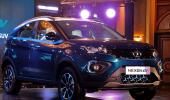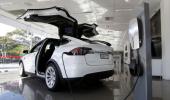According to research by IHS Markit, for an ecosystem still grappling with infrastructure issues -- the high cost of EVs and a greater OEM (original equipment manufacturer) focus on electrifying two-wheelers and commercial vehicles first -- the share of such vehicles is expected to be 4 per cent by 2030, reports Pavan Lall.
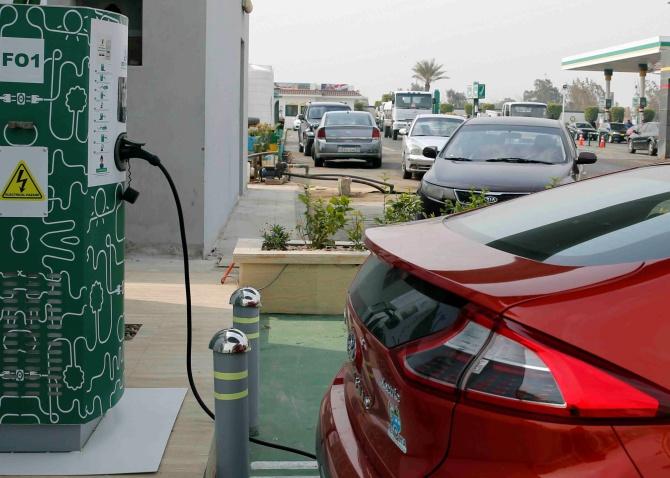
Despite the push for electric vehicles (EVs), keeping sustainability in mind, the market share for automobiles will be dominated by traditional cars for at least a decade for a multitude of reasons, primarily thanks to an absence of accompanying infrastructure for the former.
According to research by IHS Markit, for an ecosystem still grappling with infrastructure issues -- the high cost of EVs and a greater OEM (original equipment manufacturer) focus on electrifying two-wheelers and commercial vehicles first -- the share of such vehicles is expected to be 4 per cent by 2030.
The passenger car market in India has seen sales volumes of over 3 million units in the past couple years.
A study by CRISIL Research shows that by 2024, 43-48 per cent of new three-wheelers (excluding e-rickshaws), and 12-17 per cent of new two-wheelers sold in India will be EVs.
However, traction may be low for four-wheelers, with only 5 per cent of new sales are likely to be of EVs.
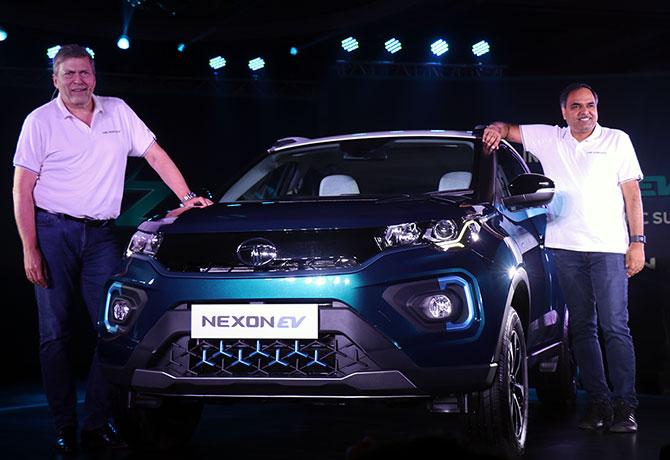
Shailesh Chandra, president, e-mobility business and corporate strategy, Tata Motors, says that EV adoption can be fast-tracked by extending the FAME (Faster Adoption and Manufacturing of Hybrid & Electric Vehicles) incentive to cars that quality (QUALIFY) under it.
"The personal segment is seven-eight times larger than the fleet segment and, thus, even lower penetration in personal segment will unleash a different kind of potential for electrification," Chandra said.
The government earlier projected targets of ensuring 15 per cent of all vehicles becoming electric by 2022 to 100 per cent auto electrification by 2030.
However, those are likely to fall short unless other variables are factored in. For one, the infrastructure -- including charging station and power outlets -- will be limited to private homes and office parks for the foreseeable future.
"The lack of charging infrastructure is a barrier in scaling up EVs in India," said Mahesh Babu, CEO, Mahindra Electric.
Suraj Ghosh, principal analyst (powertrain forecast) at IHS Markit, said traditional fuel stations are available at a ratio of one filling station to a 100 vehicles, and CNG (compressed natural gas) -- introduced 15 years ago -- is available at a ratio of one station to 2,000 vehicles.
"Building electric infrastructure will not happen overnight and unless that happens on a broader scale, most customers will be hesitant," he said.
"Parity must be there in terms of price, range and convenience with regards to re-fueling and cost efficiencies."
The other factor is residual value. How will resale of an electric car work in five years given technological leaps and a mindset where consumers are used to driving vehicles for decades.
Manufacturers are offering long-term warranties for as long as eight years on their batteries, but that may take time to catch on.
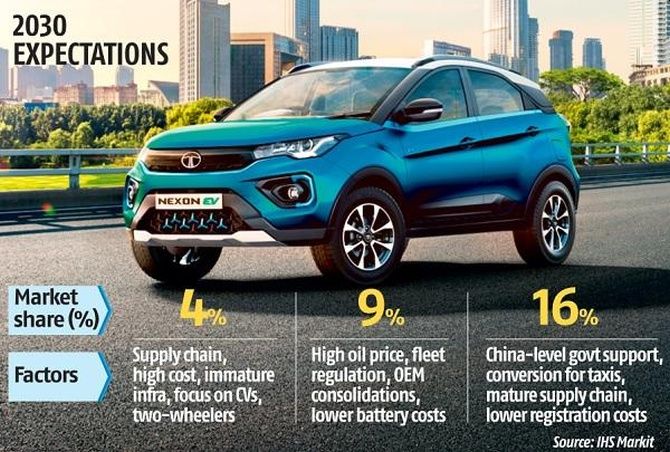
Mass adoption would require a large number of EV models at various price points that can address multiple use cases.
"Recent launches by mainstream automakers shows a clear intent of positioning EVs for personal buyers, and as more and more choices are made available and charging infrastructure hits a critical mass, it could create an inflection point for adoption within the next two to three years," said Chandra.
Babu said the demand for EVs in the personal segment would accelerate over the next three to six years.
"We see the cost of EVs to be on a par with ICE (internal combustion engine) vehicles in about five to six years. That's when there will be a huge demand in the personal segment as well."
Kavan Mukhtyar, partner and leader, PricewaterhouseCoopers, said a significant shift to electric will take at least five years.
"Fleet operators will shift first and it's already happening," he says, pointing to companies like Bengaluru-based Lithium Urban Technologies, which launched an electric fleet of Mahindra cars targeting employee transportation, and has also set up services in the Delhi National Capital Region.
Tata Motors is on the same track. "The idea is to grow small fleet operators who will expand EV usage as a start," Mukhtyar said.
Falling EV battery prices could mean there's a chance that market share could climb as high as 15 per cent by 2030.
"There exists a consumer who wants to be an early adopter and acquire a product that benefits the environment and prices for Bharat Stage (BS) VI vehicles are already pushing traditional cars higher on price. So, the gap will continue to get bridged."
What role does product performance play for EVs? "Range, for one is not an issue. Most EVs displayed at the recent auto expo claim a capacity of 300 kilometers, which is sufficient for Indian metros," Mukhtyar said.
From an OEM perspective, sustainability will determine how EVs will develop because it requires careful partnerships, a new way of engineering, especially of batteries, and there's the looming prospect of heavy capital costs.
"Those are long-term decisions that any car-maker will have to make very carefully, because their survival will depend on it," Ghosh said.

